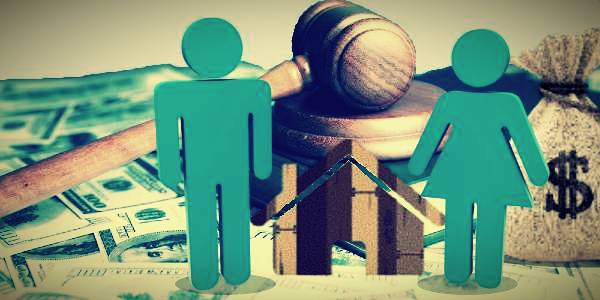The decision to declare bankruptcy will not have any bearing on custody or child support decisions in a divorce case that is currently in court.
But it will end the continuing divorce litigation over property split. If you and your spouse are joint debtors on any debts discharged in bankruptcy, your spouse will still be liable for those debts.
Learn more about how declaring bankruptcy may impact your impending divorce.
Bankruptcy creates the Automatic Stay on Property Division
Nearly all of your possessions become part of your bankruptcy estate when you file for bankruptcy. Additionally, an automatic stay forbids any attempts to seize or exert control over assets belonging to the bankruptcy estate takes effect. This includes the divorce-related estate property division proceedings.
Chapter 7 bankruptcy or Chapter 13 bankruptcy will determine how your divorce will impact bankruptcy. The court will appoint a trustee. The trustee in a Chapter 7 bankruptcy has the authority to sell your non-exempt property to pay your creditors. This implies that the trustee will decide which assets are part of the estate and if they should be auctioned to pay creditors.
"The factor that would affect this has a combined property with your spouse. In both cases, the court orders an automatic stay on debts. Only an order from the bankruptcy court will continue your divorce proceedings or asset divisions in the family court. What is exempted from this are child support proceedings. Separate your accounts from your spouse before the divorce. This will ensure their bankruptcy procedures will not affect your divorce case and credit points. Explain your situation to the divorce and bankruptcy lawyer so they can determine a proper course of action." said Deepa Tailor from Tailor Law.
Selling your assets
If you and your ex jointly hold property, the trustee may even be entitled to sell the entire asset if you cannot exclude the value of your portion.
The trustee would pay your ex the value of their interest from the sale profits if the trustee concludes that your ex-stake spouse's in the property is not a component of your bankruptcy estate.
But as you can see, declaring bankruptcy while going through a divorce can slow things down and complicate things.
Bankruptcy case under Chapter 13
In Chapter 13 bankruptcy, the trustee doesn't liquidate your belongings to pay your creditors. However, the amount of non-exempt property you own impacts how much of your repayment plan must be paid to unsecured creditors.
The trustee will, therefore, still need to estimate the value of your property holdings. The duration of Chapter 13 repayment arrangements is additionally three to five years.
As a result, to proceed with the divorce property division, either you or your ex will typically need to request permission from the bankruptcy court.
Automatic Stay Exception for Domestic Support and Custody Cases
The automatic stay can prevent the distribution of assets in a divorce, but it does not apply to measures taken to determine custody or child support. It won't be stopped by filing for bankruptcy if you are trying to decide who will obtain custody of your kids or whether each spouse will be responsible for child support.
The decision to declare bankruptcy will not have any bearing on custody or child support decisions in a divorce case that is currently in court.
Read Article: 21 FAQs on automatic stay violation in bankruptcy
Tiffany Homan, from Texas Divorce Laws, said, "It will stop the divorce proceedings over the division of the property. Whenever a bankruptcy case is filed in court, an automatic stay goes into effect, preventing the divorce court from dividing your property rights between you and your spouse. If you want the divorce proceedings to move forward, then the divorce court will need an order granting relief from the bankruptcy court."
Conclusion
Family law and bankruptcy law can intersect in a variety of contexts. In some cases, declaring bankruptcy while going through a divorce can add needless delays or issues. Consult a competent bankruptcy lawyer in your region to discuss how declaring bankruptcy can impact your impending divorce.









